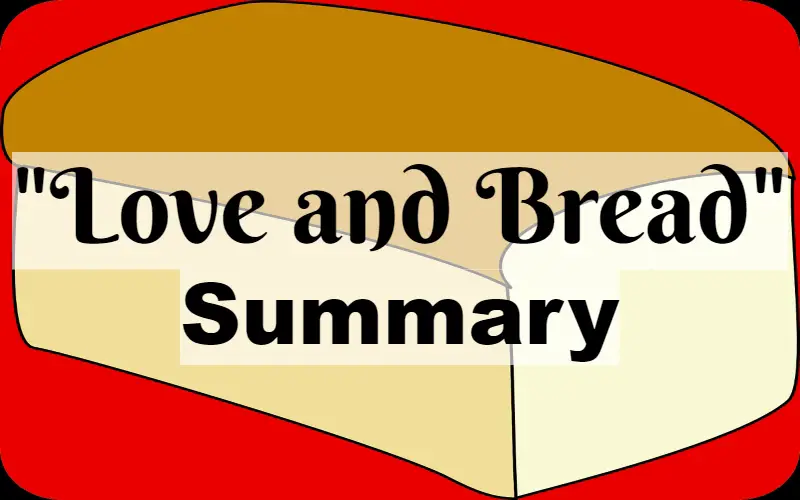“Love and Bread” Summary
Falk asks Louisa’s father for permission to marry her. The father inquires about Falk’s income—twelve hundred crowns—which isn’t enough. Falk tries to explain how strongly they feel for each other, but the father only wants to hear about numbers.
They try to calculate how much Falk earns outside his regular job. He earns a little from translating, but he doesn’t know how steady this will be. Children will be expensive, so he should know what his income will be.
The father relents and gives his permission, but tells Falk to use his engagement time to earn more. Falk is overjoyed and thankful. He leaves to take a walk with Louisa and they share a happy walk.

Falk visits Louisa in the evenings. He misses some work so they can spend time together. As the wedding draws near, they pick out furniture for their new place according to Louisa’s preferences. Falk gets further behind on his work.
They decide to start reasonably with a two room place, although Louisa would prefer three. Soon, the place is fully furnished, including a piano for Louisa that cost a month’s salary. It looks comfortable and cozy. They get married on a Saturday and are delighted.
On Sunday morning, Falk is up at nine. He’s contented as he looks at his new wife and gets dressed. He feels strong and appreciates their new utensils. He tells the cook to order breakfast.
When it arrives, Falk sets the table and puts out the food, making sure everything looks nice. Louisa comes to the table in a morning gown. They enjoy an expensive breakfast with roast pheasant and liqueurs. Falk feels superior to bachelors. Louisa is concerned about the cost of the meal.
That evening, they take a carriage ride through the park. They’re greeted by acquaintances and look prosperous.
They live happily and lavishly for a month, and passed their time pleasantly with company and at home alone.
Louisa cooks various meals for them. One day, Louisa is angry when Falk overpays for two partridges, but she doesn’t say anything.
Six weeks later, Louisa gets sick with headaches and nausea. Four weeks later it’s clear Louisa is pregnant. Louisa tells Falk he has to focus more on his work. His salary isn’t enough for a child.
“Love and Bread” Summary, Cont’d
The next day, Falk goes to an old bachelor friend for a loan. He never married on account of his low salary, so Falk is ashamed to ask for anything. In the evening, Louisa tells him two men came by looking for him. Falk can’t guess who they were. The maid says they had sticks.
Falk brings home a can of strawberries that he overpaid for. Louise is anxious about their debts. Falk says he has a job lined up and they’ll get a loan. He sends the maid for a bottle of sherry.
After he takes a mid-day nap, Louisa tells him the merchant’s want their money. Falk will have it tomorrow morning. They go out for supper.
Months pass with Falk getting no translating jobs. Prices rise and clothes are needed for the baby. When his daughter is born, he feels the weight of responsibility. He tells his father-in-law about the birth and asks for some help. He agrees to help only this one time.
Louisa gets back on her feet after a while but is a little paler. Falk’s father-in-law warns against having any more children—they need bread. Falk laments the lack of idealism in the world.
Bankruptcy nears for the household. Louisa’s father arrives with a wagon and takes his daughter and grandchild with him. He forbids Falk from showing himself until he’s solvent. They leave and Falk looks on as creditors strip his home bare. Louisa would have stayed with him, but they would only have empty rooms.
Falk gets a proof-reading job on a morning paper. He works at night and can’t advance. He’s eventually allowed to see his wife and daughter briefly once a week. When they part he’s miserable and humiliated.
There’s no hope—it will take twenty years to pay off his debts and, even then, he won’t be able to support his family. If Louisa’s father dies, they’ll have nothing.
Other creatures are provided with food, but not people. Life is too difficult.
I hope this “Love and Bread” short story summary by August Strindberg was helpful.